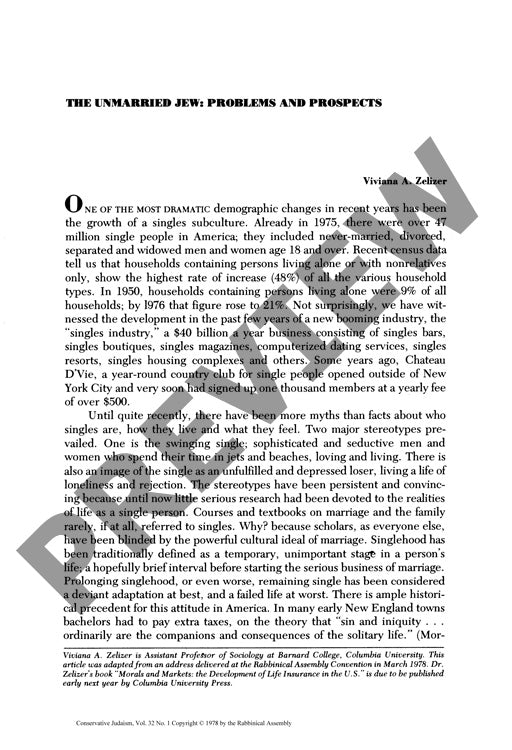The Unmarried Jew Problems and Prospects
Couldn't load pickup availability
A dramatic shift toward singlehood has transformed American Jewish life, with single-person households surging from 9% in 1950 to 21% by 1976 and fueling a $40 billion "singles industry." Drawing on Peter Stein's New York singles survey and comprehensive demographic analyses, this research investigates how evolving attitudes toward marriage affect Jewish communal institutions and identity. Through combined quantitative demographic analysis and qualitative examination of social attitudes, the study reveals a complex landscape where personal freedom, professional aspirations, and individual fulfillment increasingly compete with traditional marriage expectations. Single women demonstrate notably higher psychological stability than their married peers, while single men struggle more with adjustment. Yet both groups face significant challenges of loneliness and social isolation within couple-oriented Jewish spaces. Jewish institutions, particularly synagogues, continue treating singlehood as a temporary phase rather than acknowledging it as a legitimate lifestyle choice - an approach that threatens both participation and communal continuity. The findings suggest that Jewish organizations must move beyond merely tolerating singles to actively integrating unmarried members, as supporting diverse lifestyles proves more effective than traditional pressure toward marriage in maintaining Jewish communal engagement in contemporary America.

More Information
-
Physical Description
-
Publication Information
Published 1978
ISBN
-
Publication Credits
Viviana Zelizer

